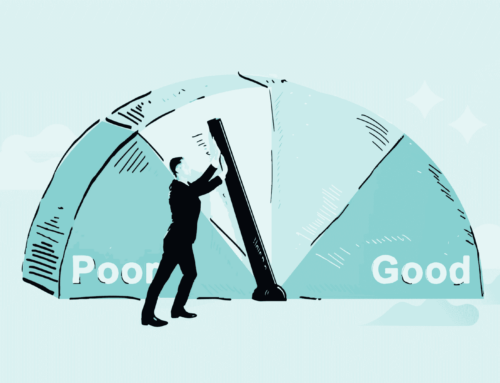In Canada, an 850-credit score is excellent. More than likely, you are someone who pays back their debt on time, has a low credit utilization rate and has a long credit history. If you have a credit score of 850, you’re more likely to qualify for lower interest rates, credit cards, loans, and other financial products.
The higher the credit score, the better in Canada. Your credit score is calculated using several factors that decide if you are creditworthy or not. These factors include your payment history, your credit mix and new credit applications. In addition, your credit score is a three-digit number generally between 300 and 900. Check it out below:
- Excellent: 741-900
- Good: 713-740
- Fair: 660-712
- Below Average: 575-659
- Poor: 300-574
An awesome credit score is between 713 and 900. If your credit score is 850, congratulations, you’re in the top tier of credit scores. But if you’re not, don’t worry. We’re here to help guide you to improve your credit score to help you reach your financial goals. Having a perfect credit score is difficult to maintain, we get it. Let’s learn some more about the benefits of having an excellent credit score and the steps you can take to get there.
Benefits of having good credit
Sometimes, it can be difficult to find the motivation to improve your credit score, especially if you’re currently facing a low score. But don’t worry, there are many steps you can take to achieve your target score and to help you reach your financial goals.
If you have a higher credit score, you’ll have an easier time getting approved for financing for large purchases such as a new car, your first home or major appliances. Let’s learn more about the benefits of having a good credit score!
- Favourable / Low-interest rates: If you’re someone with a high credit score, get ready to receive lower interest rates. In short, someone with a credit score between 713 and 850 will have the opportunity to shop around and pay lower monthly fees.
- Better credit terms: Having a good credit score will improve your chances of approval for most financial products. Because of your excellent credit history, potential lenders will be more inclined to work with you.
- Higher credit limits: If your credit score falls into the ‘Good’ or ‘Excellent’ category, you’re likely to receive higher credit limits on credit cards, lines of credit and other revolving credit products. A higher credit limit provides you with more financial flexibility in the case of an emergency.
- Top-tier financial products: Credit cards often have a wide range of benefits and rewards such as cash back, rewards points, or travel points. If you have an excellent credit score, you’re more than likely to qualify for these premium credit cards and benefits.
How can you maintain a good credit score?
If you have an 850-credit score, it’s important to take certain steps to protect it. Regardless of your credit score, these key steps can help you improve your credit score too. Check it out:
- Schedule your credit payments: It’s essential to pay your bills on time to maintain a good credit score. Most importantly, a missed payment can cost you valuable credit points. To help avoid a missed payment, try to set up automatic payments to your bills, accounts, and subscriptions. Above all, setting up automatic payments will ensure you never miss a payment which will help you protect your credit score.
- Check your credit report regularly: By checking your credit report regularly, you can spot reporting errors to ensure good financial health. If your MyMarble Premium Member, you can easily check your TransUnion credit report to help you keep track of errors. In addition, if you need to dispute your credit report with either of the Canadian credit bureaus, you can find out how here.
- Watch your credit utilization rate: Your credit utilization rate is the total amount of available credit to you. For example, if you have a $1000 credit limit and spent $500, you would have utilized 50% of your available credit. When your credit score is calculated, your creditors favour a credit utilization rate of 30% or lower. Therefore, to protect your credit score, try to pay down your credit debt to reduce your credit utilization rate.
How to achieve an 850-credit score?
There are many ways to achieve an excellent credit score. Whether you want to improve your credit score by 10 points or 150 points, focusing on your credit limit, making on-time payments, and watching how often you apply for new credit can help. Let’s learn
- Focus on your credit limit: By ensuring you don’t overutilize your credit; you can help improve your credit score. For example, maxing out your credit card may suggest to your lenders that you are not handling your money well. Your credit utilization makes up 30% of your credit score. By paying off your credit regularly, and not reaching too close to your limit, you can work towards an improved credit score.
- Make on-time payments: Your payment history makes up 35% of your credit score. Missing or making late payments will damage your credit score. If you ensure you pay your loans or credit before the due date, you can help improve your credit score.
- Limit how often you apply for new credit: The number of credit inquiries noted on your report contributes to 10% of your overall credit score. Every time you apply for a financial product, a hard credit check is pulled. Regardless of if you’re approved or denied, a hard credit check will decrease your credit score. In comparison, a soft credit pull has no impact on your credit score. Before applying for new credit, you should shop around first before picking a product to apply for. This can help you limit the number of hard pulls on your credit report and ensure your credit report remains excellent.






